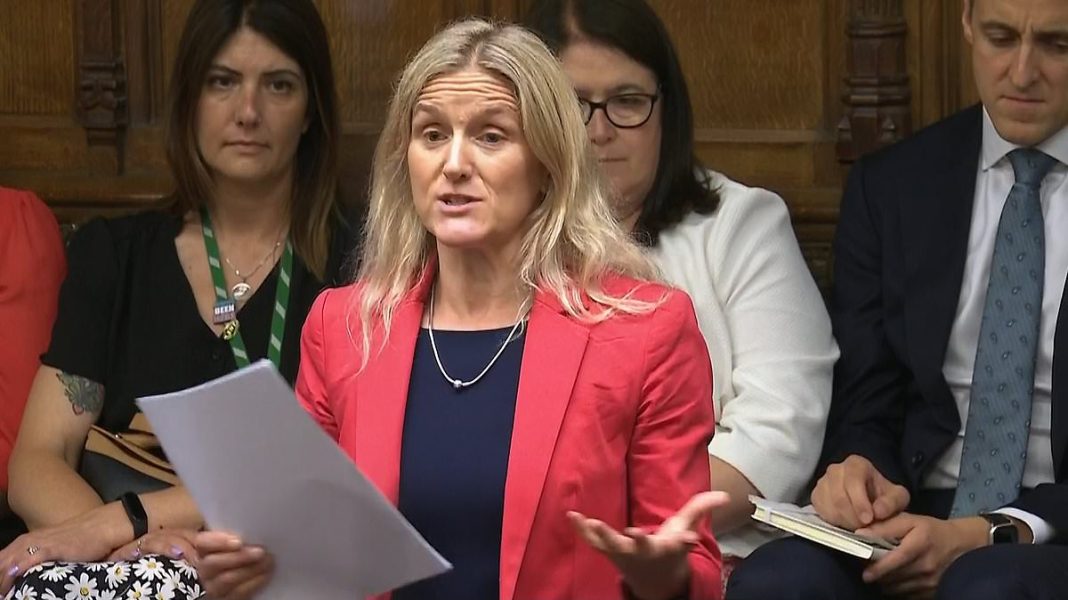Campaigners last night vowed to fight the assisted dying Bill in the Lords after MPs moved to legalise it in a historic vote.
In a sign of the concern about the Bill, it passed through the Commons by just 23 votes yesterday – 32 fewer than when MPs backed it in principle in November.
MPs questioned whether there was a clear mandate to introduce one of the most significant social changes in Britain for decades.
And peers vowed there would be an ‘attritional’ fight when the legislation, decried as a ‘bad Bill’ after multiple amendments were laid and safeguards stripped out, moves to the House of Lords. One warned that it may not ‘see the light of day’.
The Commons voted 314 to 291 in favour of allowing terminally ill people to end their lives with the help of the State, meaning that when abstentions are included, a majority of MPs did not back the Bill.
Sir Keir Starmer and Chancellor Rachel Reeves voted in favour, while opponents included Health Secretary Wes Streeting, Deputy Prime Minister Angela Rayner and Tory leader Kemi Badenoch.
Labour MP Kim Leadbeater’s Terminally Ill Adults (End of Life) Bill will undergo further scrutiny in the Lords, but peers said there was ‘no constitutional reason’ why it could not be amended significantly or even thrown out by the Upper House.
Following an emotional debate in the Commons, Ms Leadbeater described the vote as a ‘huge moment in time’ and said it would ‘correct the profound injustices of the status quo and offer a compassionate and safe choice to terminally ill people’.
TV presenter Dame Esther Rantzen, who has terminal lung cancer and led the campaign for assisted dying, said: ‘This will make a huge positive difference, protecting millions of terminally ill patients and their families from the agony and loss of dignity created by a bad death.’
But leading opponent Danny Kruger – whose mother, Dame Prue Leith, was outside Westminster campaigning in favour of the legalisation yesterday – said the vote showed support ‘is ebbing away very fast’.
The Tory MP added: ‘I’m hopeful now, inspired by that debate and by the falling away of support for the Bill, that the Lords will feel they have a real job to do – to examine closely how the Bill will operate and to introduce their own amendments to make it safer, or to reject the Bill altogether.’
Tory peer and former Cabinet minister Mark Harper said it was possible the Bill may not ‘see the light of day’. Lord Harper, who is against assisted dying, told the Mail: ‘It’s not a government Bill and it wasn’t in anybody’s manifesto, so there is no constitutional reason why the Lords shouldn’t do its job properly and amend the Bill considerably if required.’
Baroness Tanni Grey-Thompson – a leading opponent of assisted dying – said disabled people were ‘absolutely terrified’ about the Bill as she vowed to add significant safeguards in the Lords.
It is thought it will take four years to implement the Bill should it clear the remaining stages this year and receive royal assent, meaning the first assisted death in Britain would take place by 2029.
This would mark the first time the State sanctioned a death since capital punishment was abolished in 1965, and the Government forecasts that up to 4,500 people could end their lives early each year within a decade.
Opening the debate in the Commons, Spen Valley MP Ms Leadbeater said her Bill proposed a ‘robust process that goes further than any other piece of legislation in the world’. She added:
‘Giving dying people choice about how they die is about compassion, control, dignity and bodily autonomy. Surely we should all have the right to decide what happens to our bodies and decide when enough is enough.’
But after the vote, Tory MP Greg Smith said: ‘It is not too late for us to step back from the brink and pull the plug on this Bill, which now lacks majority support in the Commons. I trust the House of Lords to scrutinise the Bill in depth and hope it will never reach royal assent.’
Catherine Robinson, from campaign group Right To Life UK, said: ‘The Bill leaves the Commons lacking a majority, with fewer than half of all MPs voting for it at its final stage. We will be fighting this Bill at every stage in the House of Lords, where we are confident it can be overturned given its continued loss of support.’
The assisted dying Bill that returned to the Commons yesterday was significantly changed from the one presented to MPs at the second reading vote in November.
Among radical amendments were the removal of the High Court safeguard – with a senior judge replaced by so-called ‘suicide panels’ made up of a lawyer, psychiatrist and social worker.
The proposed legislation will allow terminally ill adults in England and Wales with fewer than six months to live to apply for an assisted death. Subject to approval by two doctors and an ‘expert panel’, the terminally ill person would take an approved substance, provided by a doctor but administered only by the person themselves.
Religious groups expressed horror at the Bill’s passing.
Bishop of London the Rt Rev Sarah Mullally, who sits in the House of Lords, said her peers ‘must oppose’ the Bill due to the ‘mounting evidence that it is unworkable and unsafe’.






